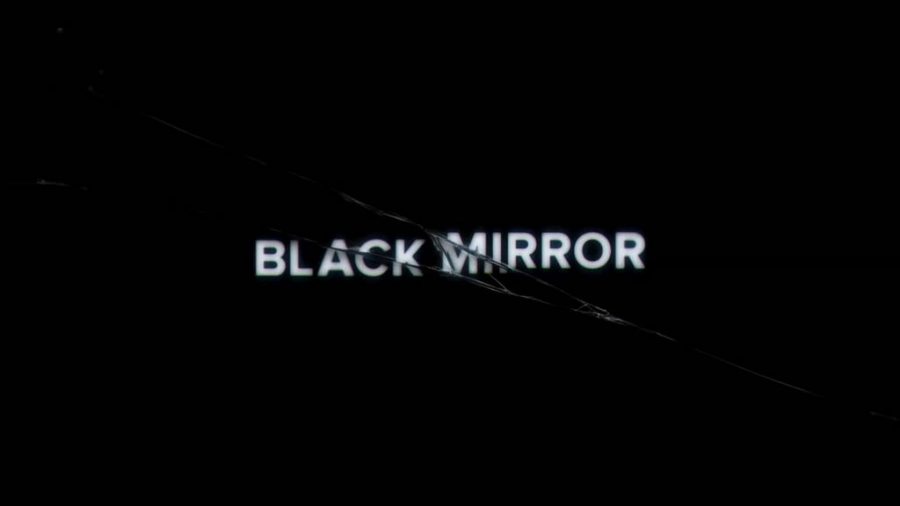Technology in the 21st century: what’s not to love? From smartphones and supercomputers to virtual reality and artificial intelligence, technology has radically altered our way of life. Charlie Brooker decided to take our love of — or rather, addiction to — tech to the next level with his sci-fi anthology series “Black Mirror.” The show is like a contemporary “Twilight Zone,” telling suspenseful and satirical tales that explore our troubling addiction to technology and its terrifying potential faults. Sometimes the scariest aspect of an episode is the chilling possibility that the tech depicted could exist in our future. But, even with all the critical acclaim and Emmys, the show is not without its polarizing moments. This is Unpopular Opinions: “Black Mirror.”
“Fifteen Million Merits”
Alex Cullina, Theater & Books Editor
There’s an argument — one I generally agree with — that “Black Mirror” dipped sharply in quality after Netflix purchased the series following its second three-episode season. Compared to those first six episodes, which aired on Channel 4 in the U.K. between 2011 and 2013, the newer episodes tend to rely on shock value and expensive-looking production to obscure the fact that they’re devoid of any interesting commentary or ideas — think the season four installment “Crocodile,” with its beautiful shots of the Icelandic countryside juxtaposed with the four brutal murders the protagonist commits over the course of the episode. I’m not saying that the first two seasons were perfect — nobody liked “The Waldo Moment” — but “Fifteen Million Merits,” especially in the shadow of the wickedly delightful premiere “The National Anthem,” feels bland and unoriginal.
In a dystopia where people are sequestered indoors and forced to constantly watch the screens that cover every surface, Bing (Daniel Kaluuya), like everyone else, spends his time riding a stationary bike in exchange for “merits.” These bikes, endless uniform rows of them, power their entire, circumscribed existence. The screens show a constant stream of personalized entertainment and advertisements, keeping the populace docile and satiated. Classic episodes like “Be Right Back” or “The Entire History of You” are set in a future that looks reasonably like our own, but the glossy, glassed-in world of “Fifteen Million Merits” is alienating for its total unfamiliarity. “Fifteen Million Merits” is a weak attempt at satirizing consumer culture, conformity and our collective screen addiction. It has nothing new or interesting to say about these problems that have been dissected ad nauseam for decades. Feel free to click “skip.”
“White Christmas”
Guru Ramanathan, Arts Editor
Many shows, usually comedies, eventually have a Christmas special to celebrate Yuletide joy and spread holiday cheer. A bit unexpectedly, “Black Mirror” came out with one in 2014, but what’s not so surprising is how tragically it ends. This is one of the most underrated episodes of the series, partly because many people didn’t even know about it to begin with. The 74-minute episode focuses on two men (Jon Hamm and Rafe Spall) stationed at a remote outpost. They tell each other about their lives, and the episode follows three mini-stories about different pieces of technology that ultimately relate to the episode’s conclusion. While the episode covers a range of tech from personal assistant devices to “enhanced restraining orders” the beauty of it is how Brooker manages to expertly weave every little nuance into the climax. It was likely, even expected, for a Christmas special from a show like this to be just a series of technological gimmicks. But “White Christmas” is perhaps some of the best proof that “Black Mirror” excels because of its quality writing, and not just because it has out-of-left-field ideas about the future. The episode’s structure is fun but unpredictable, making the first viewing especially thrilling.
“Hang the DJ”
Nicole Rosenthal, Music Editor
“Hang the DJ” is perhaps one of the most controversial Black Mirror episodes, not for its controversial content but for the debates that have ensued over whether the episode belongs in the ‘Best of’ or ‘Worst of’ category of “Black Mirror” releases.
The episode is essentially a discussion of dating apps and the validity of algorithm-based widgets that try to guess what we would enjoy next (think Tinder if it borrowed Spotify’s “Discover Weekly” option). This episode didn’t feel so far-fetched or futuristic — much like “Nosedive,” it’s not a very difficult notion to relate to. The idea of an app giving us a time limit on dating based on an algorithm isn’t too far from where we are now. Contrasted with the apocalyptic “Metalhead” or fantastical “USS Callister,” “Hang the DJ” seems to be very present, which invokes a specific fear that this dystopia is looming.
But those who place “Hang the DJ” in the ‘Worst of’ category have valid arguments. The app-based self-sabotage bit was already done — and done well — in “Nosedive.” The simulation theory ending was an off-putting curveball that left me scratching my head. Much like “American Horror Story: Asylum,” which had a great season but wrecked 12 episodes with a five-minute ending scene featuring aliens (even for AHS, it was a weird twist), “Hang the DJ” flopped in its attempt to put a spin on what we already know about the Black Mirror universe.
While its ending remains tough to digest, the central theme of “Hang the DJ” is plain and simple. There aren’t any convoluted ideas or hidden messages: it’s all laid out in front of us, eerily similar to the present we are living in.
Email the Arts Desk at [email protected].


























































































































































